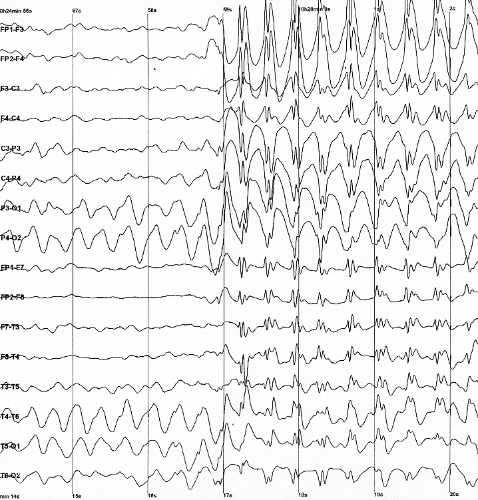Generalized 3 Hz spike and wave discharges in a child with childhood absence epilepsy. Credit: Wikipedia.
Doose syndrome or myoclonic-astatic epilepsy is a rare syndrome accounting for one to two percent of childhood epilepsies. A ketogenic diet, which is low in carbohydrates and high in fat, is an effective treatment, but it is very restrictive and difficult to follow.
In a recent study, 25 of 30 children (83 percent) with Doose syndrome who followed a modified Atkins Diet experienced a seizure reduction of at least 50 percent and 14 of 30 children (47 percent) were seizure-free.
"Toddlers are always very choosy for their food, so the modified Atkins Diet is a good choice for families with a child suffering from a Doose syndrome, as shown by our study: less restrictive than the classical ketogenic diet, easier to calculate, to cook, and having an optimal responder rate regarding seizure reduction as well," said Dr. Adelheid Wiemer-Kruel, lead author of the Epilepsia study.
More information: Adelheid Wiemer-Kruel et al, Modified Atkins diet is an effective treatment for children with Doose syndrome, Epilepsia (2017). DOI: 10.1111/epi.13701
Journal information: Epilepsia
Provided by Wiley



















